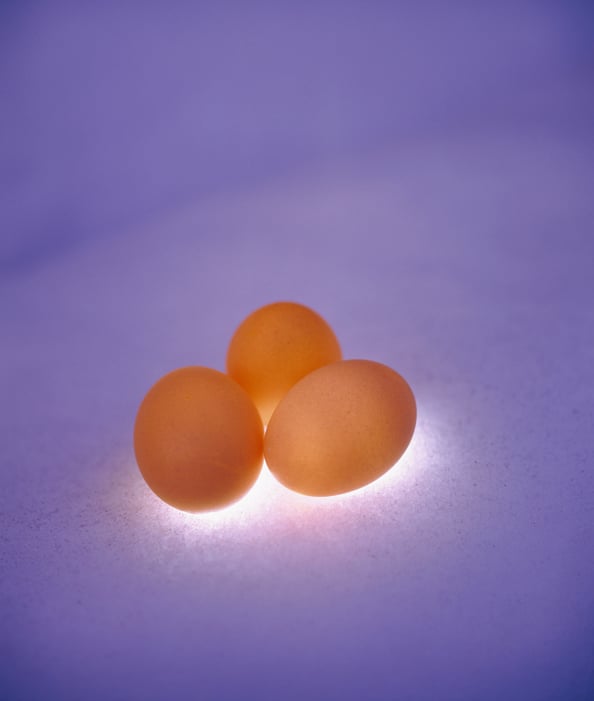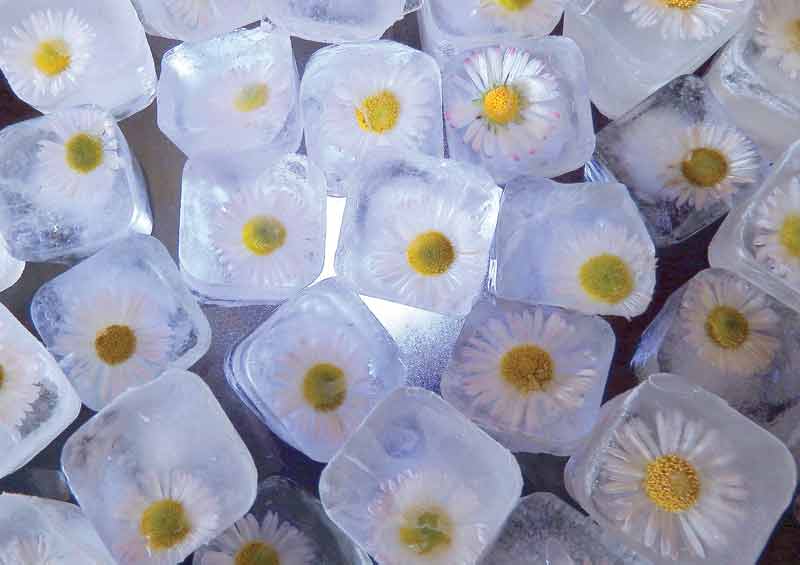Last month actress Olivia Munn revealed on Anna Faris’s podcast that she had frozen her eggs, enthusing: “I think every girl should do it!”
And with more and more people opting to have children later on in life, the Human Fertilisation and Embryology Authority (HFEA) has found that there has been a “substantial increase” in the number of women freezing their eggs in recent years. For girls whose careers are taking centre stage, it’s good to know that hitting the snooze button on your biological clock is an option. But before you go putting anything on ice, here is everything you need to know about the procedure in the UAE.
TIME IS OF THE ESSENCE
When it comes to freezing your eggs, the first rule is: the younger the better. In the UAE, the average age for women having the procedure is early thirties. “It is certainly possible to freeze eggs in a woman aged over 35, but the numbers obtained will be smaller and the quality reduced,” explains Dr David Robertson, Group Medical Director of Bourn Hall Fertility Clinic in Jumeirah, Dubai. As every woman is different, clinics always offer initial testing to determine if you are a good candidate for egg freezing at all. Who knows? Biological factors and lifestyle choices could mean one woman at 41 may be more viable than another one at 29, though statistically this is seldom the case.

Actress Olivia Munn says “every girl should [freeze their eggs]”
YOU GET WHAT YOU PAY FOR
Freezing your eggs is a pricey procedure and that’s unavoidable. Depending on the clinic, the whole process costs around Dhs15,000 – give or take the cost of injections. Researching your clinic is something you should take seriously. “Go see it yourself – visit the clinic fully armed with a questionnaire,” says Dr Pankaj Shrivastav, Director at Conceive Gynecological and Fertility Hospital in Sharjah. Ask whether or not they’ve had a successful pregnancy from someone using a frozen egg. If the answer isn’t yes, find another clinic.
Read: This Health Problem Is On The Rise In The UAE, Here’s How To Beat It
LET’S GET DOWN TO DETAILS
Women are born with two to three million eggs, which decreases to about 400,000 thousand by the time they hit puberty. Egg freezing procedures will only be able to freeze as many mature eggs as a woman can produce after ovarian stimulation in one menstrual cycle. During a normal month, the female body produces one egg, so to increase the possibility of success, medicine is used to stimulate the production of multiple eggs for freezing. “Depending on your age, that’s around eight to 14 eggs,” says Dr Pankaj.
The whole thing will take between 10 to 12 days, with ovarian stimulation taking up the bulk of this time. You’ll need to medically induce multiple eggs to be produced and this is normally through self-administered injections of follicle-stimulating hormones, luteinizing hormones or both.
But before you start squirming in your seat, remember that apart from these daily injections, which you will become quickly accustomed to, this is a painless procedure.
The actual egg retrieval itself is performed under local anesthetic and/or sedation and the procedure is usually painless. It requires no incisions; the doctor uses a special hollow needle and a suction needle to extract the eggs into a test tube. And no incisions means no scars and minimal recovery time.
Read: Princess Haya Offers Health Advice To New Mums
KNOW THE FACTS
One large misconception surrounding egg freezing is that congenital abnormalities can be detected from the eggs prior to fertilisation, but Dr Pankaj explains this is not possible: “The chromosomes of embryos can be checked because an embryo has many cells and you can take out one to five of those cells without harming the embryo. However, if you test an egg for its entire chromosomal content, you essentially kill it.”
Additionally, freezing your eggs will not hurt your odds of getting pregnant. Having eggs frozen will not affect your fertility nor will it affect your ability to fall pregnant naturally at a later date.
LOWER YOUR EXPECTATIONS
Like with natural conception, pregnancy is not a guarantee. When mature eggs are retrieved, there’s no way of knowing which (if any) are viable until it’s time to use them. Unofficial figures state that only around 5,000 babies have been born worldwide from frozen eggs, even though the treatment has been around in some form since 1986 and its popularity has been on the incline ever since. Statistically, fresh eggs have a much higher rate of resulting in pregnancy.
Read: Where To Find And Eat Healthy Desserts In Dubai
BE AWARE OF THE LAW
In the UAE there are protocols that dictate the process of freezing eggs.“There is no legal restriction on social freezing (freezing your eggs for personal and social, not medical, motives) but the eggs cannot be fertilised and replaced into a woman unless she is married and it is her husband’s sperm used for the fertilisation,” says Dr David, emphasising that a legal marriage certificate would have to be produced.
Frozen eggs can be kept for a period of five years after which it is at the clinic or patient’s discretion to keep them or discard them and the eggs may not be taken out of the country. Freezing fertilised eggs is not currently legal in the UAE and neither is egg or sperm donation. “Many women travel overseas to receive this kind of treatment but, if a pregnancy resulted, the Sharia view would be that this was an adulterous pregnancy and hence illegal,” says Dr David, adding, “It is an extremely sensitive issue and considered to be haram.” The following procedures, however, are legal: IVF (in vitro fertilisation), IUI (intrauterine insemination, when sperm is injected into the womb during ovulation), blastocyst culture (when embryos are left to develop for longer before being placed in the womb), sperm freezing and egg freezing.
If you are considering the process the most important rule is to ensure you go into it armed with as much factual information as possible and completely realistic expectations.
Images: Getty
– For more about Dubai fashion scene straight to your newsfeed, follow us on Facebook












